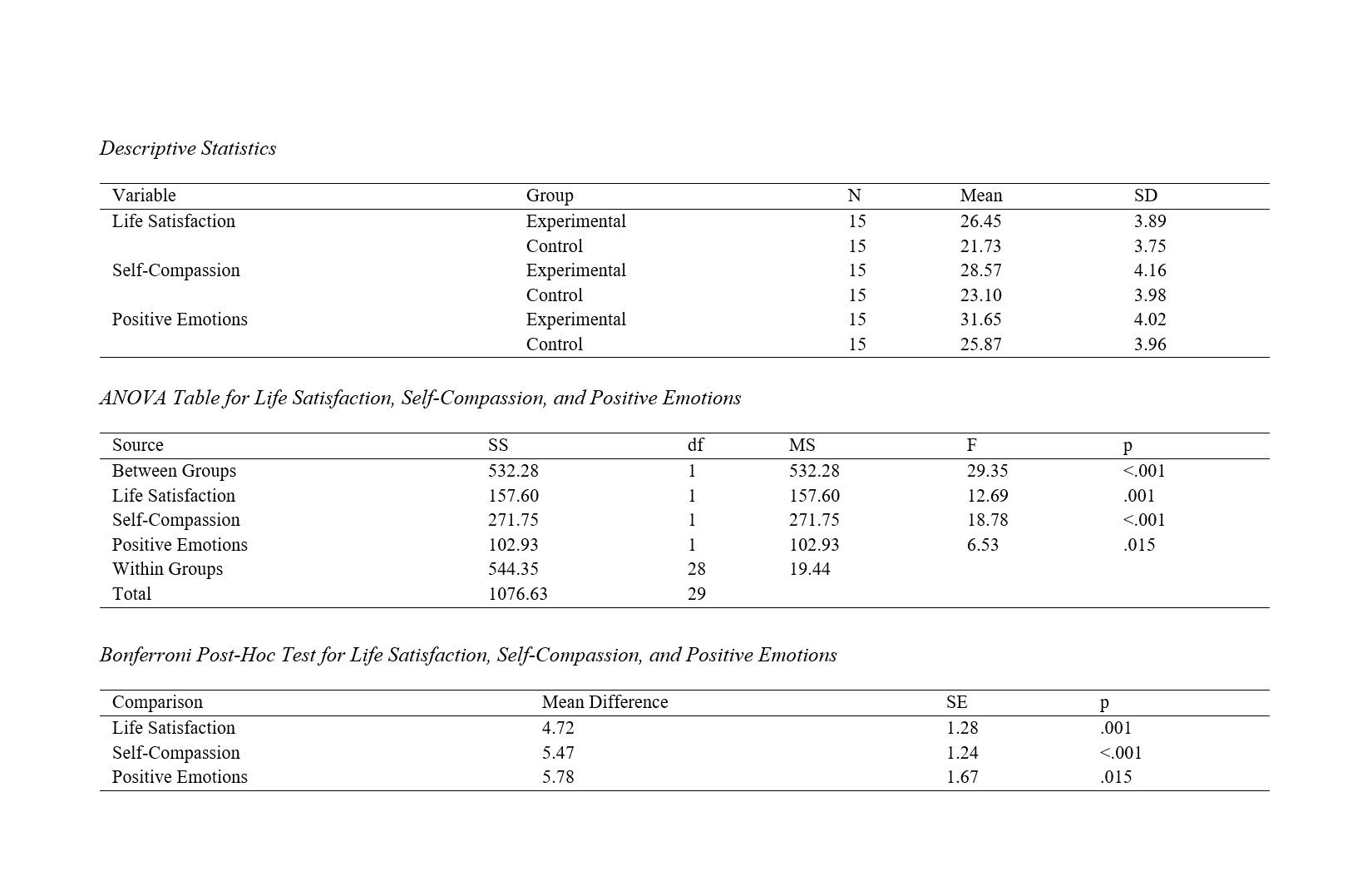The Effectiveness of Psychodrama on Life Satisfaction, Self-Compassion, and Positive Emotions in Depressed Patients
Keywords:
Individual Psychodrama, Life Satisfaction, Self-Compassion, Positive Emotions, Depressed PatientsAbstract
Objective: The aim of this research was to investigate the effectiveness of individual psychodrama on life satisfaction, self-compassion, and positive emotions in depressed patients.
Materials and Methods: The research method was quasi-experimental, conducted by comparing two groups: intervention and control, with no therapeutic intervention for the control group. The statistical sample of this research consisted of 30 women aged 25 to 45 years old, selected from among depressed patients with a significant level of depression as measured by the Beck Depression Inventory. Participants were randomly assigned to either the control or experimental groups. Variables were measured before and after the therapeutic intervention using relevant questionnaires. Life satisfaction was measured using the Satisfaction with Life Scale (Diener, 1989), self-compassion with the Self-Compassion Scale (Neff, 2003), and positive emotions with the Positive and Negative Affect Schedule (Watson & Clark, 1989). Participants attended 12 sessions, each lasting one and a half hours, with one session per week.
Findings: The findings indicate that individual psychodrama was effective in enhancing life satisfaction, self-compassion, and positive emotions in depressed patients, and this effectiveness persisted three months post-intervention.
Conclusion: Therefore, psychodrama can be used to enhance life satisfaction, self-compassion, and positive emotions in depressed women.
Downloads

Downloads
Additional Files
Published
Issue
Section
License
Copyright (c) 2024 Mandana Bagherian (Author); Mehran Azadi (Corresponding Author); Mohammad Azad Abdollahpour (Author)

This work is licensed under a Creative Commons Attribution-NonCommercial 4.0 International License.


















